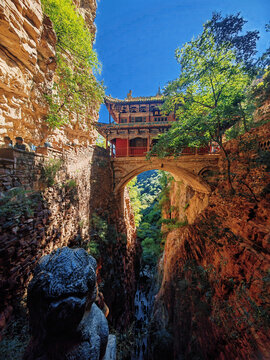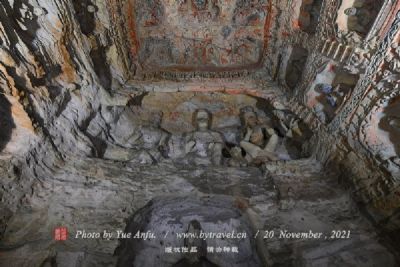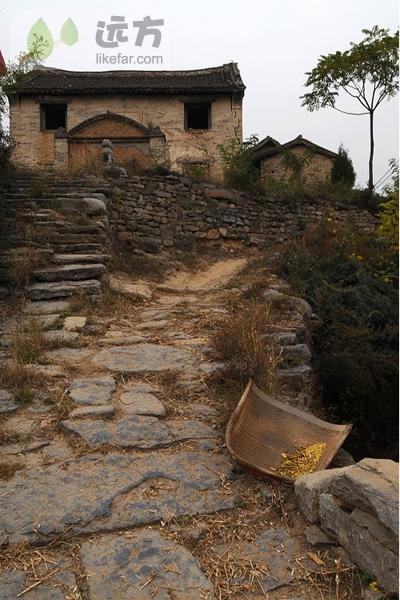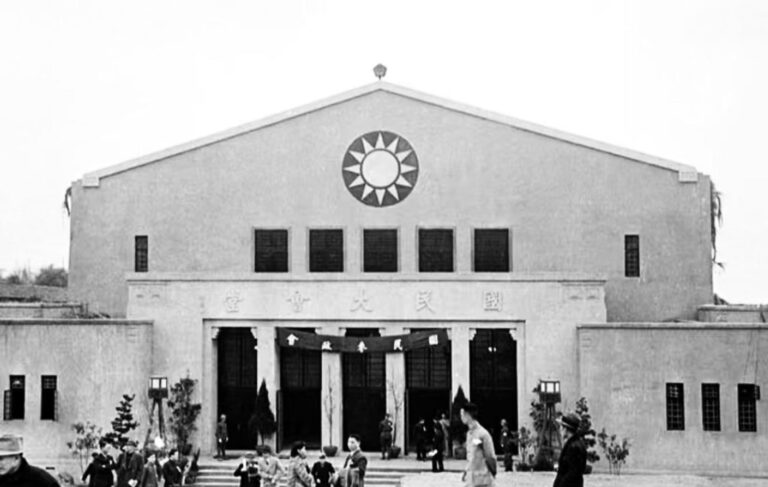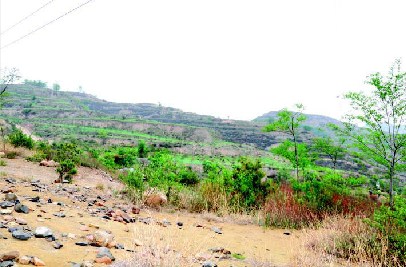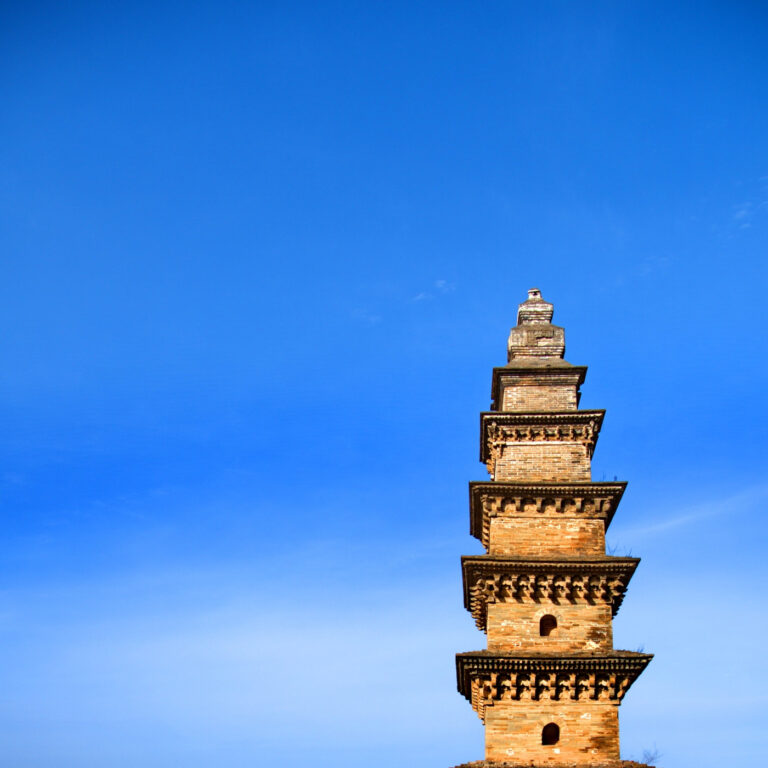Exploring Yiyang Qujiang Chayuan: A Serene Escape into Nature
An Essential Guide to Visiting Yiyang Qujiang Chayuan
In This Guide
- An Essential Guide to Visiting Yiyang Qujiang Chayuan
- The Rich History of Yiyang Qujiang Chayuan
- Main Highlights: What to See at Yiyang Qujiang Chayuan
- Planning Your Visit: A Practical Guide
- Tickets, Hours, and Booking
- How to Get There
- Local Cuisine and Accommodation
- Frequently Asked Questions
- Final Thoughts on Your Trip
Nestled in the heart of Hunan Province, the Yiyang Qujiang Chayuan, or Qujiang Tea Garden, beckons travelers with its lush landscapes and rich cultural history. Spanning over 500 acres, this tea garden is a vital part of the Anhua County’s tea production, specifically known for its distinguished Anhua black tea, which has been cherished for centuries. The garden is not just a feast for the senses but a canvas of history, featuring traditional residential architecture, ancient pathways, and several relics, including stone bridges and inscriptions that speak to its storied past.
Visitors to the Qujiang Tea Garden can delve into the intricate art of tea cultivation and processing, a heritage that has been meticulously preserved by local families who still utilize traditional tools for tea picking and production. The area is a key segment of the famed “Tea Road,” linking tea culture across China, and it proudly stands as the birthplace of the renowned Qujiang thin tea slices.
In 2019, Qujiang Tea Garden was designated as a National Key Cultural Relic Protection Unit, further solidifying its status as a must-visit destination for those eager to explore the historical and cultural tapestry of tea in China. Whether you’re a tea aficionado or simply seeking a tranquil retreat surrounded by nature’s beauty, the Qujiang Tea Garden offers an immersive experience that promises to enrich your understanding of Chinese tea culture while allowing you to bask in the serene ambiance of this picturesque landscape.
The Rich History of Yiyang Qujiang Chayuan
Nestled in the picturesque landscape of Yiyang, Hunan Province, Yiyang Qujiang Chayuan (渠江茶园) stands as a testament to the rich cultural and agricultural heritage of the region. This tea garden, sprawling over more than 500 acres in the quaint Da’an Village, is a significant part of the Anhua Black Tea production area and is renowned for its historic roots dating back centuries.
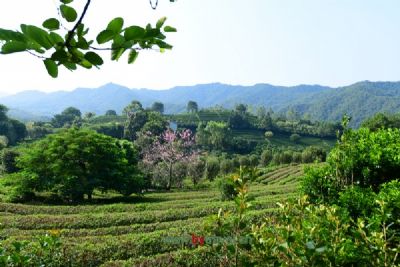
Yiyang Qujiang Chayuan.
The origins of tea cultivation in this area can be traced to the ancient practices of local communities, who first recognized the potential of the lush green hills and favorable climate for growing tea. Qujiang is not only a crucial player in the production of Anhua black tea but also serves as the birthplace of the esteemed “Qujiang Thin Tea” (渠江薄片), a traditional variety that has captured the palates of tea aficionados throughout China and beyond.
Historically, the region has been characterized by its traditional architecture and agricultural practices. The tea garden is home to several cultural relics, including three clusters of traditional houses, two ancient stone arch bridges, and remnants of old tea pavilions, which were once vital for tea processing and community gatherings. Additionally, the landscape is dotted with ancient inscriptions and wells, highlighting the area’s long-standing connection to tea culture.
In 2019, the importance of Yiyang Qujiang Chayuan was further recognized when it was designated a National Key Cultural Heritage Site. This prestigious status underscores the garden’s value not only as a producer of high-quality tea but also as a site of historical significance, preserving the traditions and lifestyles of the communities that have thrived here over the centuries.
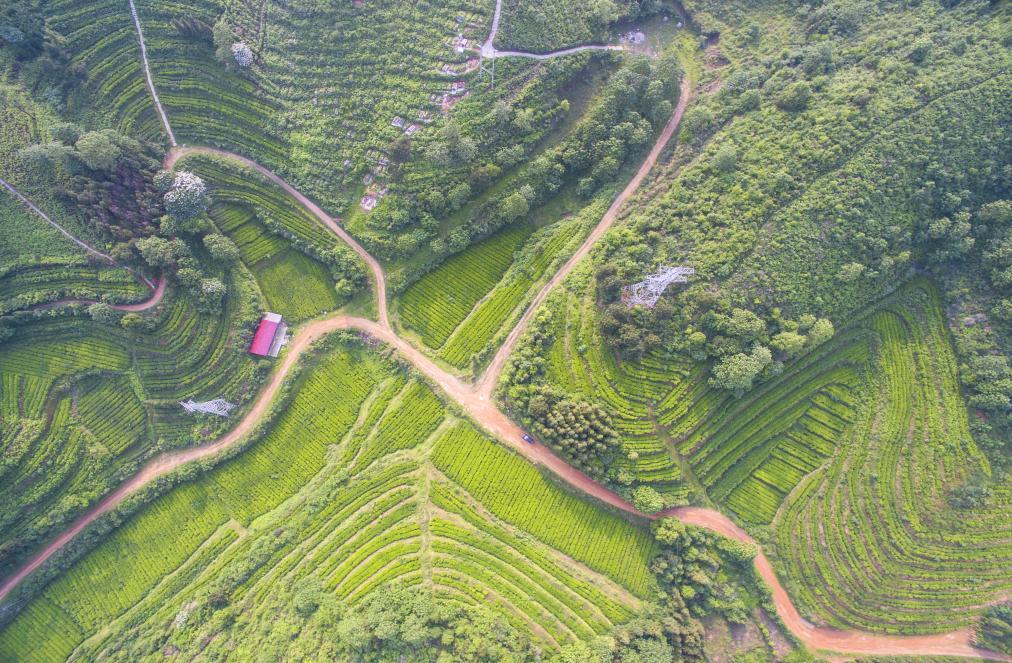
Yiyang Qujiang Chayuan.
Visitors to the Qujiang tea garden can immerse themselves in a living history, witnessing centuries-old agricultural techniques and enjoying the serene beauty of the tea fields. The area continues to be a hub for cultural exchange, drawing tea enthusiasts and tourists eager to learn about the art of tea picking and production while appreciating the scenic landscapes that have inspired generations.
As you wander through the lush tea trees and experience the local customs, you will find that Yiyang Qujiang Chayuan is not just a destination for tea lovers; it is a place where history, culture, and nature intertwine, creating a unique tapestry of Hunan’s rich heritage.
Main Highlights: What to See at Yiyang Qujiang Chayuan
Yiyang Qujiang Chayuan, located in Da’an Village of Qujiang Town, Anhua County, is a verdant tea garden that spans over 500 acres. This picturesque region is not just known for its lush landscapes; it is also steeped in rich cultural heritage and history.
One of the key attractions of Qujiang Chayuan is its traditional architecture, featuring a cluster of traditional residences that reflect the local culture. Visitors can explore ancient pathways, stone arch bridges, and historical tea pavilions that add to the charm of the area. The remnants of ancient tea gardens and inscriptions on stones found throughout the site further narrate the story of tea cultivation in this region, particularly the famous Anhua black tea, known locally as “Qujiang thin slices.”
Designated as a national key cultural relic protection site in 2019, Qujiang Chayuan is part of the Xiangxi Meishan tea-producing area, a crucial segment of the historic Tea Horse Road. The area is renowned for its unique tea varieties, with Qujiang thin slices being a notable specialty that has garnered attention for its quality and flavor.
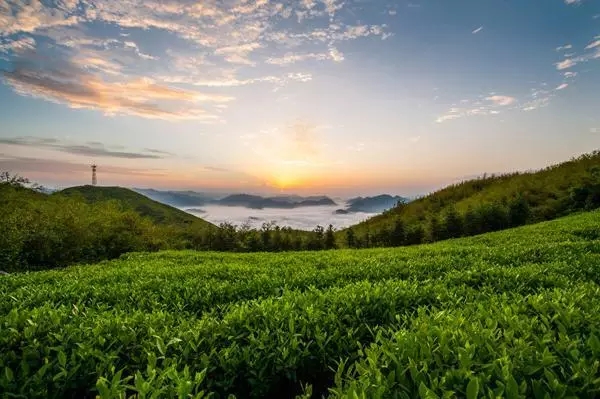
Yiyang Qujiang Chayuan.
For tea enthusiasts, a visit to Qujiang Chayuan offers the chance to participate in traditional tea picking and processing. Visitors can engage with local farmers, learn about the meticulous methods of tea production, and taste the freshest brews. The surrounding natural beauty, characterized by rolling hills and babbling streams, enhances the experience, making it a perfect retreat for those looking to escape the hustle and bustle of urban life.
In addition to its tea heritage, Qujiang Chayuan is situated near other attractions, including ancient villages and scenic spots like the Yiyang Anhua Red Rock and the Tea Culture Museum. The combination of rich tradition, stunning landscapes, and authentic local experiences makes Yiyang Qujiang Chayuan a must-visit destination for travelers seeking to immerse themselves in the heart of China’s tea culture.
Planning Your Visit: A Practical Guide
Practical Guide to Yiyang Qujiang Chayuan (渠江茶园)
Visiting Yiyang Qujiang Chayuan is an enchanting experience, especially for those who appreciate nature and cultural heritage. This practical guide will help you navigate your visit to this beautiful tea garden located in Anhua County, Yiyang City, Hunan Province.
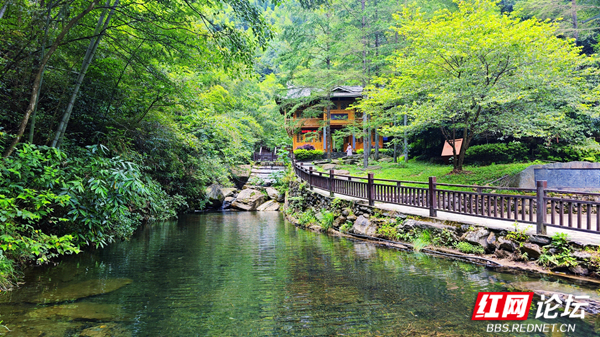
Yiyang Qujiang Chayuan.
Getting There
Location: Qujiang Chayuan is situated in Daan Village, Qujiang Town, Anhua County, covering over 500 acres. It’s a key part of the Xuexi Meishan tea-producing area, renowned for its historical significance and tea culture.
Transportation:
– By Car: The most convenient way to reach Qujiang Chayuan is by car. If you are driving from Yiyang City, follow local road signs to Anhua County. The journey takes approximately 40 minutes.
– Public Transport: You can take a bus from Yiyang to Anhua County. From there, local taxis or ride-sharing services can take you directly to the tea garden.
– Train: The nearest major rail station is in Yiyang. From Yiyang, you can take a bus to Anhua and then a taxi or local transport to Qujiang Chayuan.
Best Time to Visit
The ideal time to visit Qujiang Chayuan is during the spring and autumn months. Spring (March to May) brings blooming tea plants and mild weather, while autumn (September to November) showcases the beautiful foliage of the surrounding hills. The tea harvest season usually peaks in late March to early May, making it a great time for tea enthusiasts.
Things to Do
-
Explore the Tea Gardens: Wander through the lush tea fields, where you can witness the traditional methods of tea cultivation. The gardens are a serene spot for photography and enjoying the natural beauty.
-
Cultural Heritage Sites: The area is rich in history, with several cultural relics to explore:
- Traditional Residences: Visit the well-preserved traditional houses that reflect the architectural style of the region.
- Ancient Stone Bridges: Don’t miss the picturesque ancient stone bridges that add to the charm of the landscape.
-
Tea Pavilions and Historical Markers: Learn about the local tea culture and history through the various historical markers and tea pavilions scattered throughout the area.
-
Tea Tasting Experiences: Participate in tea tasting sessions to sample the famous Anhua black tea, particularly the “Qujiang thin slices.” Many local tea houses offer tastings where you can learn about the different types of teas and their health benefits.
-
Hiking and Nature Walks: The surrounding hills provide numerous hiking trails. Enjoy a leisurely walk or a more challenging hike to see the stunning views of the tea landscape and the nearby mountains.
-
Interactive Workshops: Some local residents offer workshops on traditional tea picking and processing methods. Join a workshop to gain hands-on experience in the tea-making process.
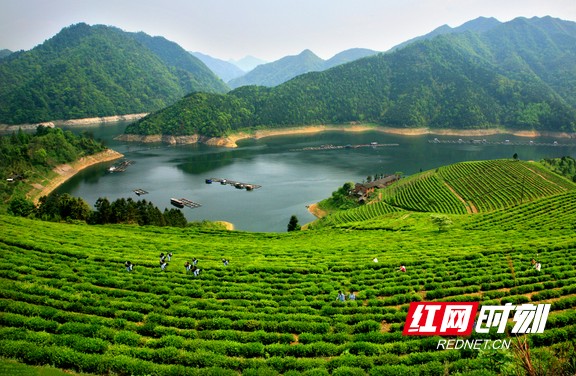
Yiyang Qujiang Chayuan.
Local Cuisine
While in the area, don’t miss the opportunity to savor local Hunan cuisine. Look for:
– Spicy Dishes: Known for its bold flavors and spices, Hunan cuisine features dishes like stir-fried vegetables, spicy fish, and the famous stinky tofu.
– Tea-infused Dishes: Some restaurants may offer dishes that incorporate local teas, enhancing the culinary experience.
Accommodation
While Qujiang Chayuan itself may not have extensive accommodation options, several hotels and guesthouses are available in nearby Anhua County. Consider booking ahead, especially during peak tourist seasons. Options range from budget hostels to more luxurious hotels, providing a variety of choices based on your preferences.
Practical Tips
- Cash: Although some places accept digital payments, it’s wise to carry cash for small purchases, especially in rural areas.
- Language: Basic Mandarin may be helpful, as English is not widely spoken. Learning a few phrases can enhance your interactions with locals.
- Respect Local Customs: When visiting tea farms and cultural sites, it’s important to respect local traditions and practices.
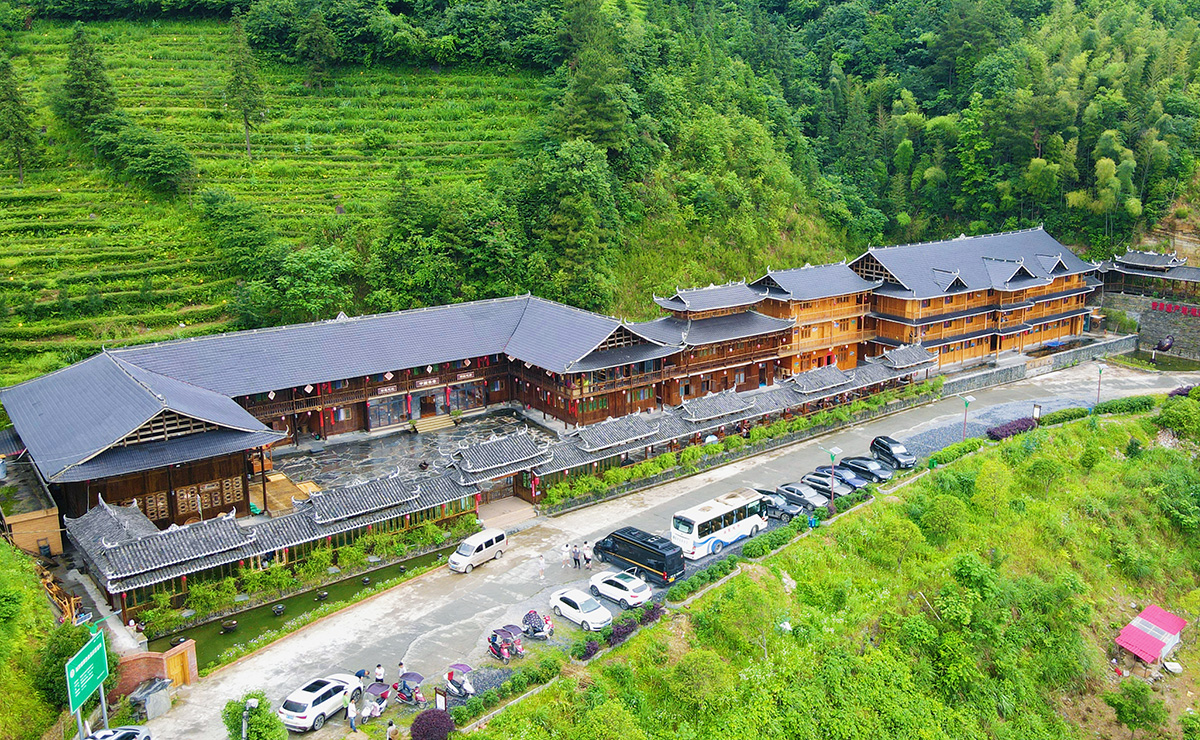
Yiyang Qujiang Chayuan.
Conclusion
A visit to Yiyang Qujiang Chayuan is not just about tea; it’s an exploration of culture, history, and nature. Whether you’re a tea lover or simply seeking a tranquil escape, this destination promises a memorable experience that captures the essence of Hunan’s rich heritage. Enjoy your journey into the heart of China’s tea culture!
Tickets, Hours, and Booking
For those looking to explore the enchanting Yiyang Qujiang Chayuan (渠江茶园), ticketing is straightforward, ensuring a smooth and enjoyable visit to this culturally rich tea garden.
Ticket Information
Visitors to Qujiang Tea Garden can expect an affordable entry fee, which is typically around CNY 20 (approximately USD 3). This nominal fee grants access to the sprawling 500-acre estate, where you can immerse yourself in the serene landscapes, historical relics, and traditional tea-making practices that define this unique site.
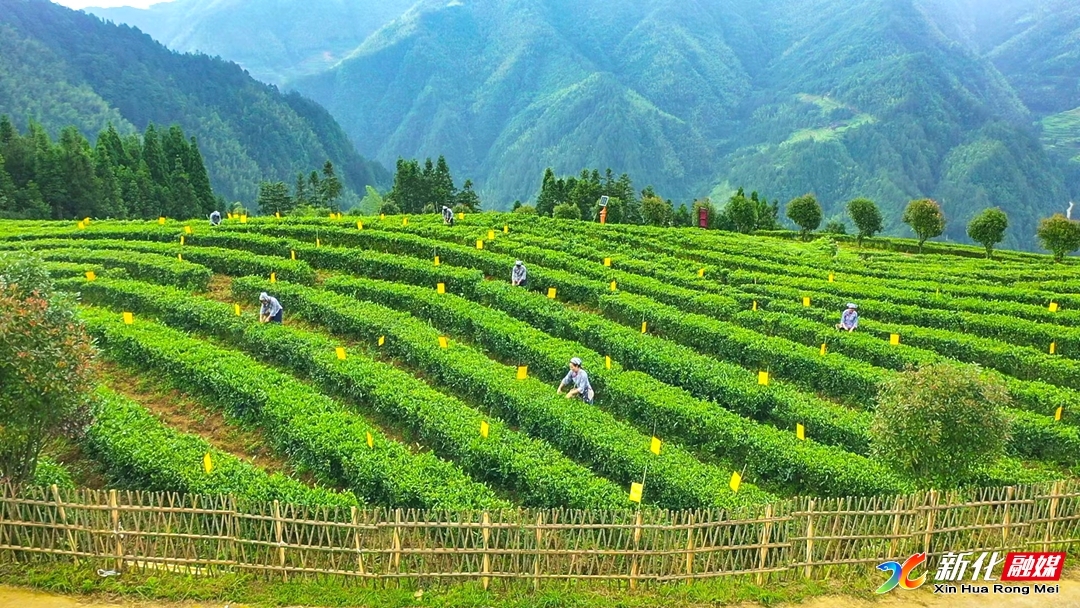
Yiyang Qujiang Chayuan.
Tickets can be purchased at the entrance of the tea garden. It is advisable to arrive early in the day to enjoy a leisurely stroll through the ancient tea trees, explore the traditional residences, and appreciate the two ancient stone arch bridges, all while avoiding peak visitor times.
Group Discounts
For larger groups, such as school trips or organized tours, special discounts may be available. It’s recommended to contact the management of the tea garden in advance to inquire about group rates and any additional arrangements that can enhance your visit, such as guided tours or tea tasting sessions.
Additional Experiences
While in the tea garden, consider participating in traditional tea-picking experiences or workshops on tea processing, which may require separate fees. These activities provide a deeper understanding of the tea culture that has flourished in this region for centuries.
Accessibility
The Qujiang Tea Garden is well-equipped to accommodate visitors with disabilities. However, it is advisable to check in advance for any specific needs or assistance required during your visit.
By planning ahead and securing your tickets, you can fully enjoy the tranquility and beauty of Qujiang Tea Garden, making it a memorable part of your travel itinerary in Yiyang.
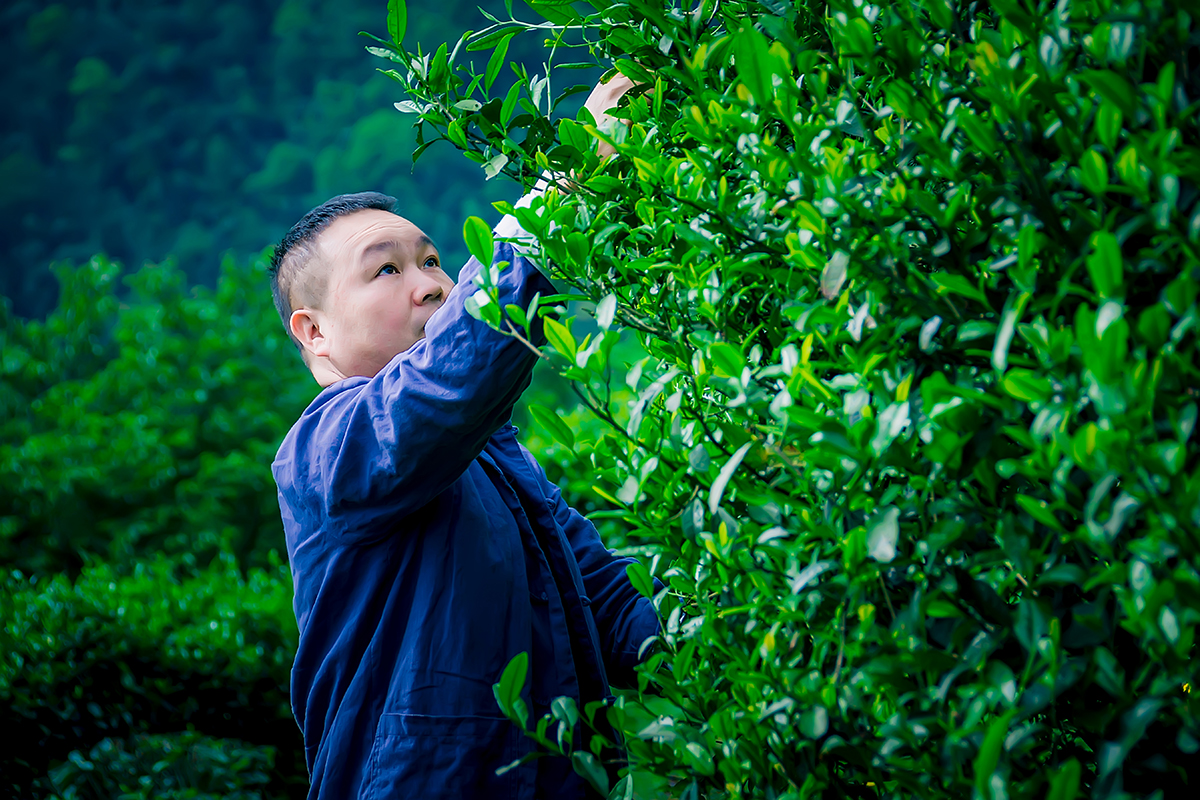
Yiyang Qujiang Chayuan.
How to Get There
When planning your visit to Yiyang Qujiang Chayuan (渠江茶园), understanding the transportation options available is essential for a smooth and enjoyable experience. Located in Daan Village, Qujiang Town, Anhua County, Yiyang City, this scenic area is well-connected to various modes of transport, making it accessible for both local and international travelers.
Getting There
By Air
The nearest major airport to Yiyang Qujiang Chayuan is Yiyang Mingyueshan Airport (YIH), which is about 30 kilometers away. The airport offers domestic flights connecting to major cities like Beijing, Shanghai, and Guangzhou. From the airport, travelers can take a taxi or arrange for a private car service to reach the tea garden.
By Train
Yiyang Railway Station is the primary railway hub in the region, located approximately 30 kilometers from the tea garden. It is serviced by high-speed trains from cities such as Changsha and Guangzhou. Upon arriving at Yiyang Railway Station, you can take a taxi or local bus to Qujiang Town. The journey by taxi takes around 40 minutes, while buses may take longer depending on the schedule.
By Bus
For those traveling by bus, Yiyang has a long-distance bus station that connects to various cities across Hunan Province. Buses to Anhua County depart regularly throughout the day. Once in Anhua, local transportation options such as taxis or rideshare services can take you to Qujiang Chayuan.
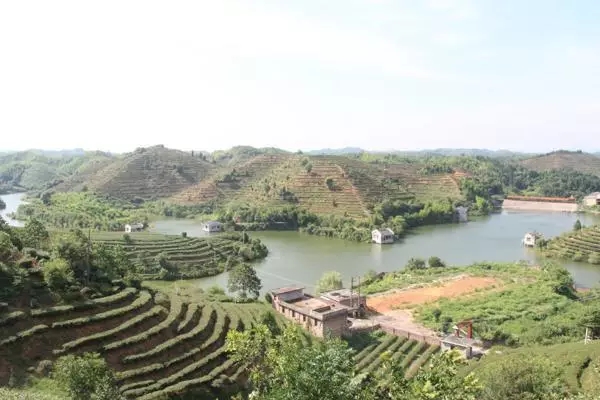
Yiyang Qujiang Chayuan.
By Car
Driving to Yiyang Qujiang Chayuan offers the flexibility to explore the surrounding areas at your own pace. If you are renting a car, you can follow the G56 Hangzhou-Ruili Expressway, which leads directly to Anhua County. The journey from Changsha takes about two hours, while it takes around an hour from Yiyang city center.
Local Transportation
Within Qujiang Town, transportation options include:
– Taxis: Readily available and a convenient option for short distances.
– Bicycles and E-scooters: Some visitors choose to rent bicycles or electric scooters to explore the scenic tea gardens and nearby attractions.
– Walking: The area around Qujiang Chayuan is pedestrian-friendly, allowing visitors to enjoy the beautiful landscapes on foot.
Tips for Travelers
- Plan Ahead: Public transport schedules can vary, so check the latest timetables and book your tickets in advance, especially during peak travel seasons.
- Language: Although English signage may be limited, most taxi drivers in the area understand basic directions. Having the destination written in Chinese can be helpful.
- Local Apps: Download local transportation apps (if available) for easier navigation and to check bus or taxi services.
By utilizing the available transportation options, you can make the most of your visit to Yiyang Qujiang Chayuan, soaking in the rich culture and stunning natural beauty that this unique destination has to offer.
Local Cuisine and Accommodation
When visiting the Yiyang Qujiang Chayuan, travelers can indulge in a remarkable culinary experience that reflects the rich agricultural heritage of the region, particularly its famed black tea. The area is renowned for its tea culture, so don’t miss the chance to savor different varieties of Anhua black tea, especially the iconic Qujiang thin slices, which are best enjoyed at local tea houses.
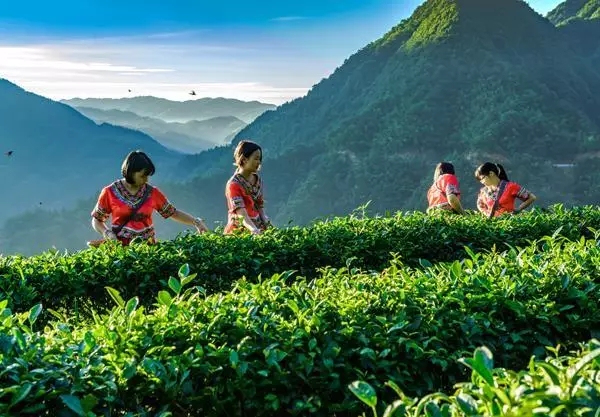
Yiyang Qujiang Chayuan.
Culinary Delights
Local eateries often serve traditional dishes that pair beautifully with tea. Be sure to try the following culinary highlights:
- Tea-Infused Dishes: Many restaurants offer meals that incorporate local teas, such as tea-smoked duck or tea-flavored tofu, showcasing the versatility of this cherished ingredient.
- Hunan Cuisine: Known for its bold flavors, Hunan cuisine features dishes like spicy fish head and stir-fried seasonal greens, which are often available in nearby towns and villages.
- Local Snacks: While exploring the tea gardens, you can sample various local snacks like roasted chestnuts and hawthorn berry products, which are popular among visitors and locals alike.
For those interested in a more immersive experience, consider participating in a tea-picking session followed by a tea tasting. Many local farms offer tours that include a hands-on experience combined with a delightful meal.
Accommodation Options
When it comes to lodging, Qujiang offers a range of accommodations to suit different preferences and budgets:
-
Guesthouses and B&Bs: For a cozy and authentic experience, stay in one of the charming guesthouses in Daan Village. These establishments often feature traditional architecture and provide a personal touch, with hosts who are eager to share their knowledge of the area and its tea culture.
-
Eco-Resorts: If you prefer a more secluded experience, consider booking a stay at an eco-resort nestled in the hills. These resorts typically offer stunning views of the tea fields, along with amenities like spa services and guided nature walks.
-
Hotels in Nearby Towns: There are also several hotels in Yiyang and the surrounding towns, providing a comfortable base for exploring the area. Many of these establishments offer modern conveniences while being just a short drive from Qujiang Chayuan.
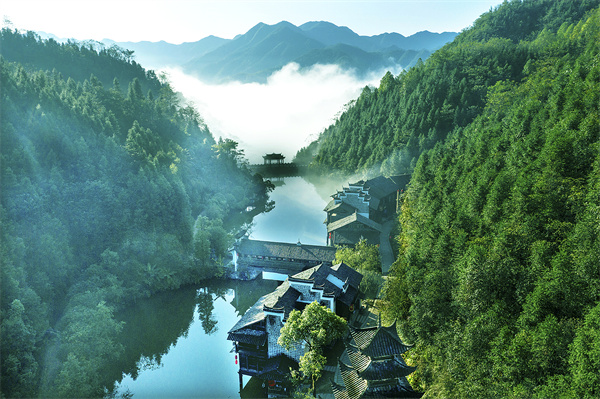
Yiyang Qujiang Chayuan.
No matter where you choose to stay, the warmth of local hospitality and the beauty of the tea gardens will surely enhance your visit to this tranquil corner of Hunan province.
Frequently Asked Questions
Frequently Asked Questions about Yiyang Qujiang Chayuan
1. What is Yiyang Qujiang Chayuan?
Yiyang Qujiang Chayuan, located in Daan Village, Qujiang Town, Anhua County, is a renowned tea garden covering over 500 acres. It is famous for its rich history in tea production, particularly as the origin of Anhua Black Tea.
2. How do I get to Qujiang Chayuan?
Qujiang Chayuan is easily accessible by car or public transport from Yiyang city. The journey typically takes about 30-40 minutes, depending on traffic conditions. Local buses or taxis are available for those coming from nearby towns.
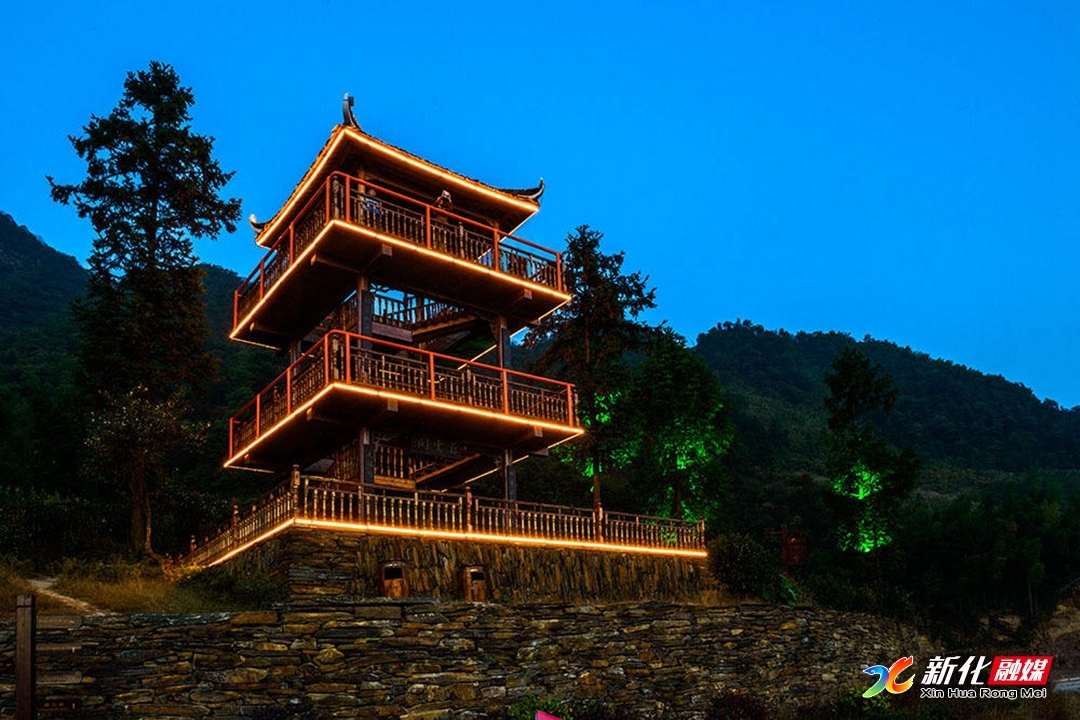
Yiyang Qujiang Chayuan.
3. What can I do at Qujiang Chayuan?
Visitors can explore traditional tea cultivation methods, tour historical relics such as ancient residences and stone bridges, and enjoy beautiful landscapes. Tea tasting sessions and workshops on tea processing are also popular activities.
4. Are there any historical sites near Qujiang Chayuan?
Yes, the area is rich in historical sites, including ancient tea pavilions, stone arch bridges, and old tea gardens. These sites offer a glimpse into the long-standing tea culture and local traditions.
5. When is the best time to visit Qujiang Chayuan?
The ideal time to visit is during the spring (March to May) and autumn (September to November) when the weather is pleasant, and the tea leaves are at their best for harvesting. The scenery during these seasons is also particularly stunning.
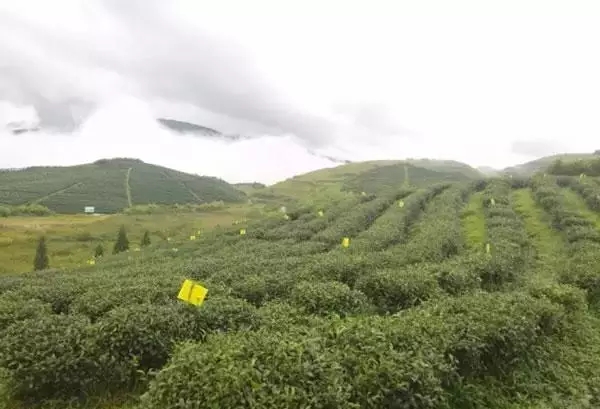
Yiyang Qujiang Chayuan.
6. Is there an entrance fee for Qujiang Chayuan?
Currently, there is no entrance fee to visit Qujiang Chayuan. However, fees may apply for specific activities such as guided tours, tea tasting, and workshops.
7. Can I buy tea products at Qujiang Chayuan?
Absolutely! There are various shops within the tea garden where you can purchase high-quality Anhua Black Tea and other local tea products. It’s a great opportunity to bring home authentic tea as souvenirs.
8. Are there any accommodations nearby?
While Qujiang Chayuan itself does not offer accommodations, there are several hotels and guesthouses in Yiyang city and Anhua County. It is advisable to book in advance, especially during peak tourist seasons.
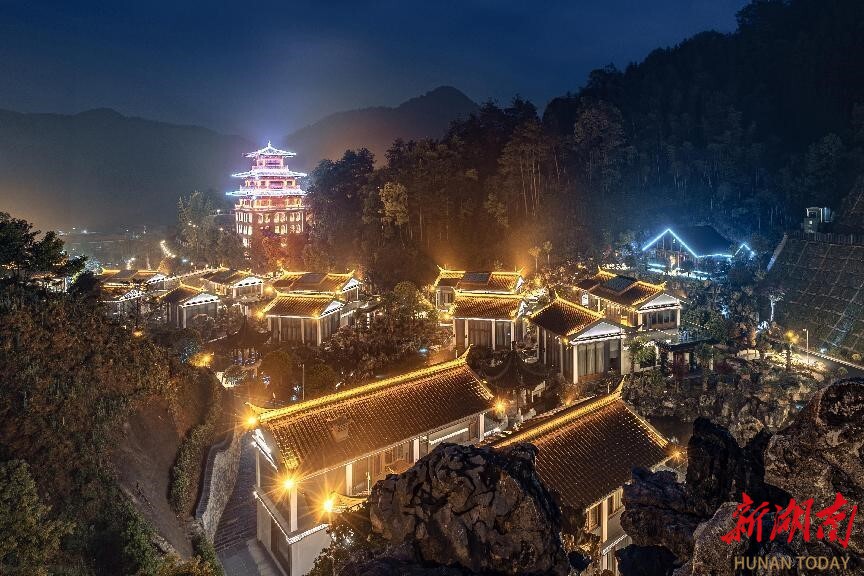
Yiyang Qujiang Chayuan.
Final Thoughts on Your Trip
Visiting Yiyang Qujiang Chayuan is more than just a trip; it’s an immersion into the rich tapestry of Chinese tea culture and history. Nestled in the serene landscapes of Anhua County, the tea garden offers a unique glimpse into the ancient practices of tea cultivation and production that have been cherished for centuries. As you wander through the lush greenery, take a moment to appreciate the traditional architecture, the whispers of history that echo from ancient stone bridges, and the vibrant community that continues to honor its tea heritage.
This enchanting destination not only serves as the birthplace of the renowned Anhua black tea but also stands as a testament to the region’s dedication to preserving its cultural legacy. With its recent designation as a key national heritage site, Qujiang Chayuan invites visitors to explore its scenic beauty, engage with local traditions, and savor the exquisite flavors of its famed teas.
Whether you’re a tea enthusiast or a traveler seeking tranquility amidst nature, Yiyang Qujiang Chayuan promises an unforgettable experience. So pack your bags, step away from the hustle and bustle, and let the enchanting charm of this tea garden rejuvenate your spirit. Your adventure into the heart of tea culture awaits!
